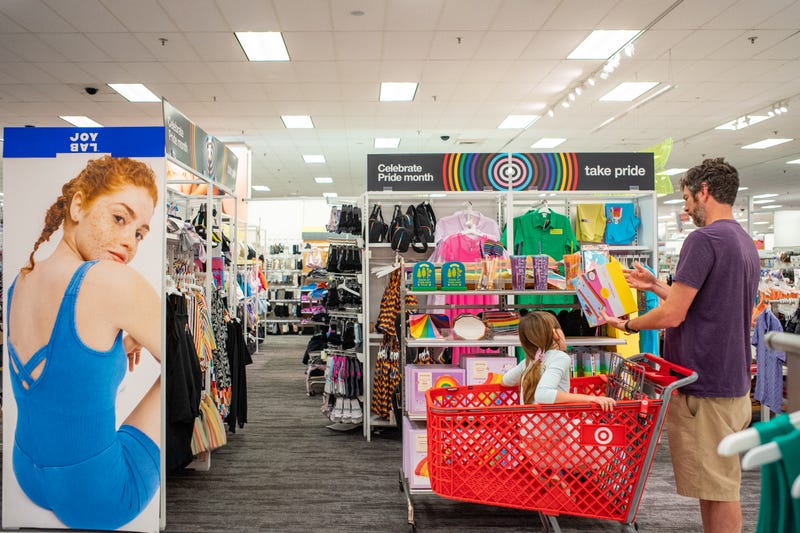
PHILADELPHIA (KYW Newsradio) — Days before the beginning of Pride Month, Target Corp. made headlines by announcing that it would be removing certain LGBTQ identity-themed merchandise in select stores. In response to high-profile videos circulating on social media, showing influencers going into Target stores expressing anti-LGBTQ sentiment — in some reports, threatening employees — the retail chain would pivot its strategy around Pride Month.
Since then, the reaction from LGBTQ and allied communities has been fierce.
🎧 Listen to KYW Newsradio In Depth
Bryan Buttler owns and operates a media relations firm based in Philadelphia that supports LGBTQ clients.
"Target, you know, was always considered something of an ally," Buttler said. "They have in one fell swoop really shown that their actions are performative."
In a conversation with KYW Newsradio’s Matt Leon, Buttler offers tips and resources for consumers who want to know how much certain companies truly support LGBTQ communities. He also shares some insights on just how much money LGBTQ business owners and consumers are pumping into the economy.
"What I don't quite understand about it is there are many things in Target I see for sale that I don't like," Buttler said. "I don't buy them. I go and buy what I want, and I leave. You know, if you don't like the merchandise, go get your toilet paper and go home."
He said the push against Target and other companies is being driven by a small but aggressive group of people who have used social media to create ideological echo chambers.
"And what's I think is particularly sad — if you look at it even from a media studies point of view — is that these echo chambers can have extreme power. If all you are seeing is a certain narrative that has been sliced together particularly for TikTok or for social media, and you're not fully quite understanding the greater picture, you know, studies have shown that people can fall right into it, stay in that chamber and not really look at anything outside of it."



